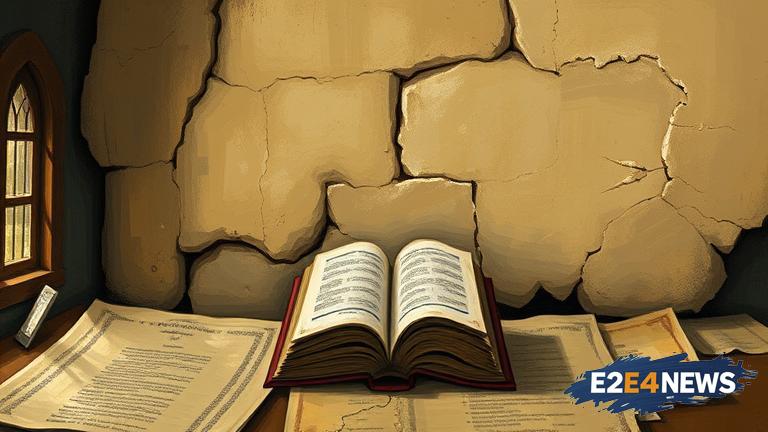The history of rabbinical laws is a complex and intriguing topic that spans centuries, with its roots in ancient Jewish tradition. Rabbinical laws, also known as halakha, are a set of rules and regulations that govern various aspects of Jewish life, including worship, diet, and social interactions. These laws are based on the Torah, the central text of the Jewish faith, and have been interpreted and expanded upon by rabbinical authorities over the years. The development of rabbinical laws can be traced back to the Talmudic era, when Jewish scholars and rabbis began to codify and interpret the Torah. This process continued through the Middle Ages, with the emergence of prominent rabbinical figures such as Maimonides and Rabbi Joseph Karo. The rabbinical laws have had a profound impact on Jewish culture and society, shaping the way Jews live, worship, and interact with one another. From the laws of kashrut, which govern dietary practices, to the laws of Shabbat, which regulate observance of the Sabbath, rabbinical laws have played a vital role in maintaining Jewish identity and tradition. Despite their significance, rabbinical laws have also been the subject of controversy and debate, with different interpretations and approaches emerging over time. Some have argued that the laws are too rigid or restrictive, while others see them as essential to preserving Jewish heritage. In recent years, there has been a growing interest in rabbinical laws, with many Jews seeking to learn more about their faith and its traditions. This renewed interest has led to the development of new educational programs and resources, aimed at making rabbinical laws more accessible and understandable to a wider audience. The study of rabbinical laws is not limited to Jews, however, as scholars and researchers from various backgrounds have also become interested in this field. By examining the history and evolution of rabbinical laws, researchers can gain a deeper understanding of Jewish culture and society, as well as the complex dynamics of religious law and tradition. Furthermore, the study of rabbinical laws can also provide insights into the development of other legal systems and traditions. In addition to their historical and cultural significance, rabbinical laws continue to play an important role in modern Jewish life. Many Jews around the world observe these laws, which provide a sense of connection to their heritage and community. The laws also serve as a source of guidance and wisdom, offering insights into how to live a virtuous and meaningful life. As the Jewish faith continues to evolve and adapt to changing circumstances, the rabbinical laws remain an essential part of its tradition and identity. In conclusion, the history of rabbinical laws is a rich and complex topic that offers a fascinating glimpse into the Jewish faith and its traditions. By exploring the origins, evolution, and significance of these laws, we can gain a deeper understanding of Jewish culture and society, as well as the enduring importance of religious law and tradition. The study of rabbinical laws is a rewarding and enriching pursuit, one that can provide insights into the human experience and the search for meaning and purpose. Whether you are a scholar, a researcher, or simply someone interested in learning more about the Jewish faith, the history of rabbinical laws is a topic that is sure to captivate and inspire. With its complex history, rich cultural significance, and ongoing relevance to modern Jewish life, the study of rabbinical laws is an essential part of any exploration of the Jewish faith. As we continue to learn more about these laws and their importance, we can gain a deeper appreciation for the Jewish tradition and its enduring legacy. The history of rabbinical laws is a testament to the power of faith and tradition to shape our lives and our communities, and its study offers a unique opportunity for personal growth and discovery.
